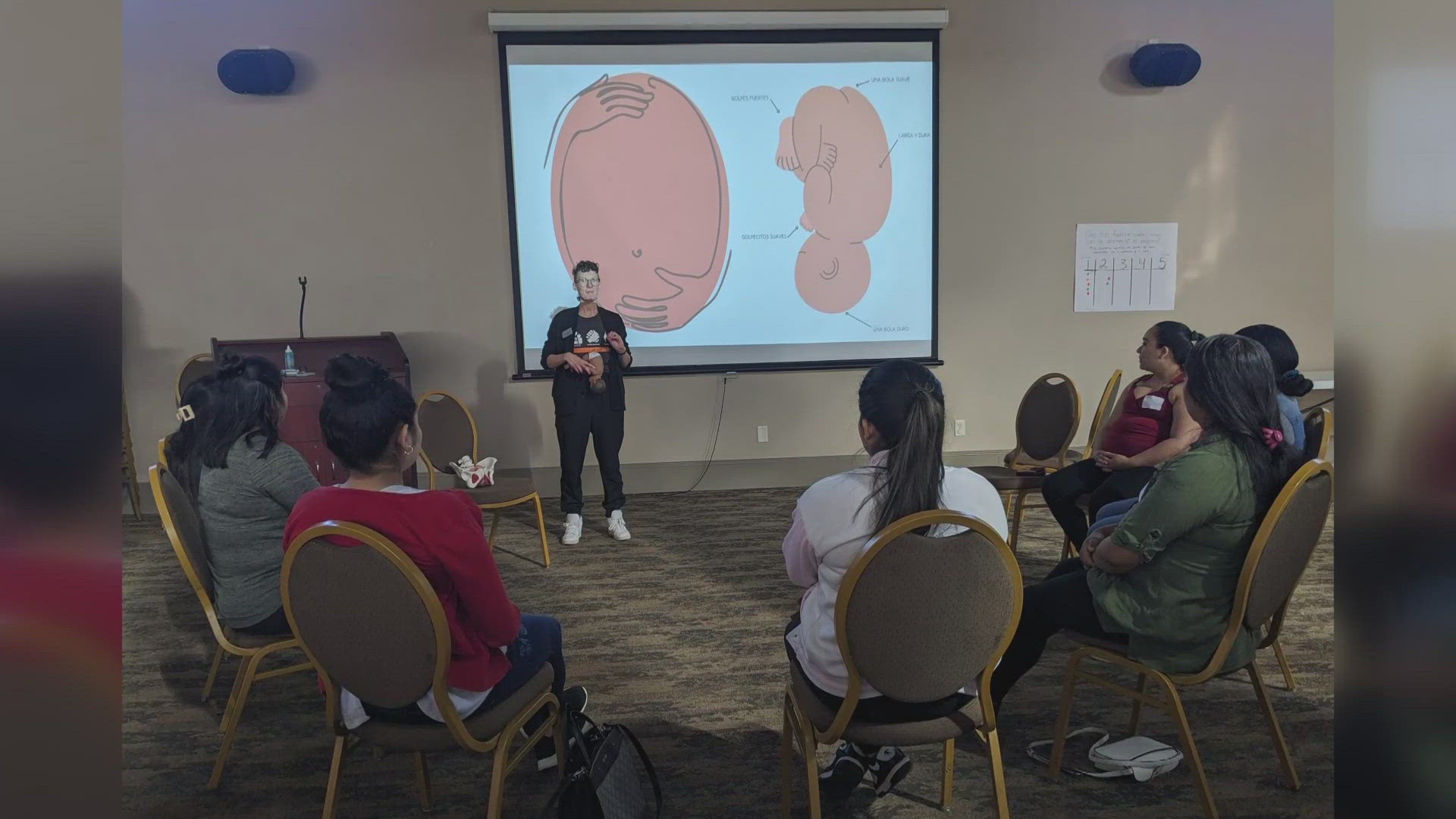KNOXVILLE, Tenn. — A local organization has launched a pilot program aimed at helping pregnant Latinas navigate pregnancy and postpartum life.
Centro Hispano has partnered with Cherokee Health Systems and the University of Tennessee to kickstart the pilot CUNA, which means "crib" in Spanish, program.
Cristina Cáceres, Centro Hispano's director of community resources, said the idea for the program began when Cherokee Health reached out saying they were seeing an increase in the number of pregnant Latinas.
"I was starting to navigate becoming a mother for the first time as an immigrant navigating the healthcare system," Cáceres recalled. "We knew Centro had a gap in services since there was not a specific program to address maternal health. So we thought this was our opportunity to create something to work with the health providers and really have those community voices inside."
This program offers group prenatal sessions where Latinas can get medical attention, peer support and education. These sessions create an environment where expecting mothers can share their experiences and receive comprehensive healthcare.
Cáceres said it is focused on emotional well-being and empowerment with a goal to address isolation and loneliness. Those are two common issues many Latina mothers face in East Tennessee, according to local leaders.
"When I talk about the healthcare system everybody is, like, 'Oh, yeah, that is so difficult for everybody'," she mentioned. "Now imagine being new, not understanding the system. Maybe you do not have your family where, if you did and it is your first pregnancy, you would turn around maybe to your sister, to your cousin."
Aside from offering prenatal services, CUNA also focuses on providing postpartum help as well. The program offers both home visits and group sessions to try to ensure a smooth transition into parenthood.
Cáceres said it also addresses behavioral and mental health needs, emphasizing one in every five women who suffer from postpartum depression.
"This is one of the most vulnerable times in the life of a woman and it is also the most empowering moment," Cáceres said. "So we really want to bring that to the table by giving them the tools so that then they can really feel like they own this moment because it is a magical moment, but there is a lot of challenges."
The CUNA program also partners with Centro's medical interpreter cohort, which allows these mothers to have Spanish-speaking translators for their sessions.

